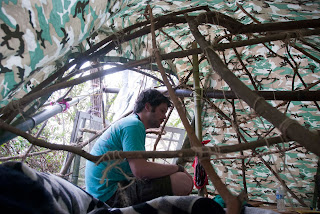






I am so thankful that we had the discussion in class about the readings. It made me feel much more comfortable about it. When reading about science, I just got anxious and uncomfortable. So I was glad I was not alone in this uncomfortableness. Talking through the readings, made it much more accessible to me. I thought it was really interesting to also sit in the car with Matt, Ellee, and Riley on the way to the house. Hearing Ellee and Riley, as science majors, talk about how they never realized how difficult science can be for some people, made me think about my own disciplines. While my Latin American studies major doesn't seem to inaccessible being that it is an IDS major, my English major does. There are a lot of people who don't like reading books, my sister included. I don't understand how people can be like that but they are. Also people who read books don't necessarily read books in the same way I do. I read them in somewhat analytically, from my years of practice, in many ways that a scientist reads a biology article and probably dissect it. Last semester in my English capstone, Lauren, Rena and I among others, tried to master the book House of Leaves. Many of my friends, English majors and not, feared this book. But I took it head on. In the same way, I feared science classes, but some of my live for them. So I think the readings from last week, while difficult especially Kuhn and his “The Nature and Necessity of Scientific Revolutions,” I was better able to understand Stuart Kauffman's Breaking the Galilean Spell.
Michael Pollan is a pretty interesting fellow. I do have to agree that with some of the Slate review says about his book. I am actually interested into what he said considering when I tried watching the documentary Food Inc. I somewhat play the ignorant fool when eating. I am starting to eat healthier. But it is hard to be incredible detail about what goes in your food. I plan to eliminate gluten from my diet but it will be a slow and difficult process. Right now, without a car and time to research non gluten meals/food, its hard to quit it but it is on my plan to do it. His second talk reminded me a lot of certain parts of Jared Diamond's Guns, Germs and Steel.
I don't think that I will be able to kill my own food but I hope to one day have a garden that I grow vegetables in and eat them. I am grad he is drawing attention the fact that we may eat organic food, but where it comes is also important. Some of it is imported, which cost energy. Lyle Estill talked about similar issues in his talk. 17% of our fossil fuel goes to our food process which is outstanding, as well as we eat four tons of carbon a year.
Cara Craig was a pretty awesome girl. I love hearing her history about how she got to where she is. Her very nontraditional method through college to get to her very nontraditional career all seemed very logical but I am glad we got to share the class with her.





